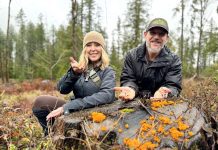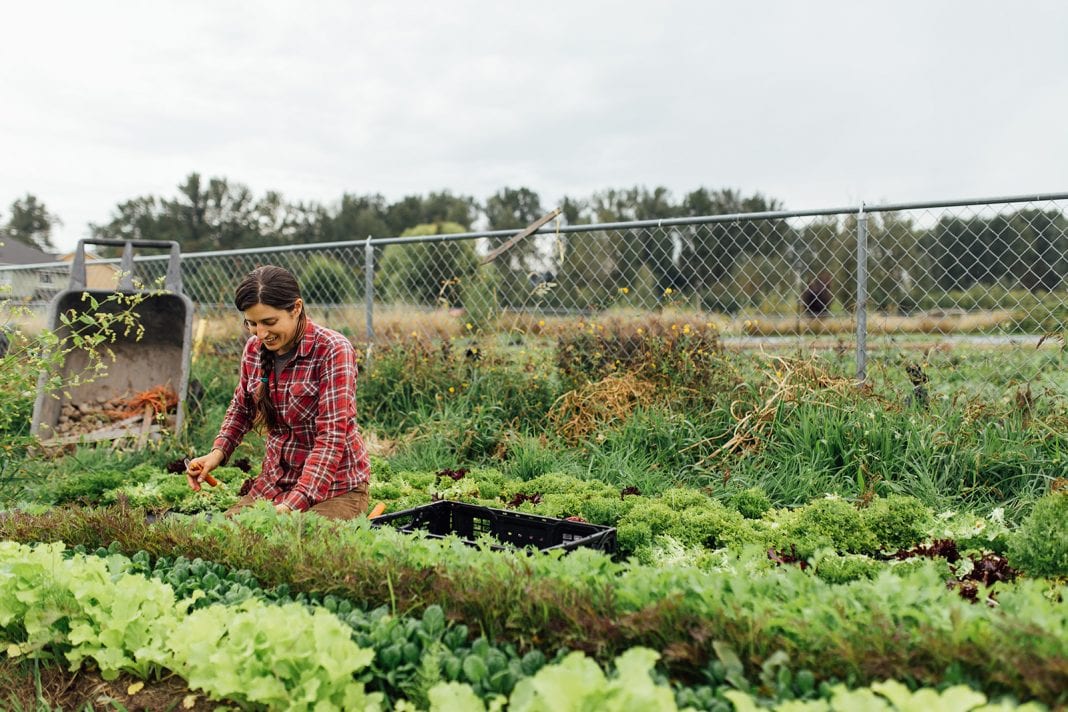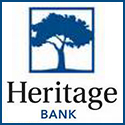In early February, the Eat Local First initiative created a new tool called the Community Supported Agriculture, or CSA Finder. The resource helps support local farms and gives Washington residents the keys to locating subscription options to farm shares of fresh produce, meat, dairy, eggs, and many other products available in the region.
“Our newest tool is integrated within the Washington food and farm finder. The database is a separate tab on the website,” says Micha Ide, manager at Pierce County Fresh and member of the Eat Local First Collaborative. “It allows consumers to see the list of CSA farms that are in their area, or based on what their preference is, rather than trying to navigate each individual farm website.”
The collaborative is made up of organizations from around the state. It includes The Local Food Trust, Pierce County Fresh, Sustainable Connections, Tilth Alliance, Washington State University Food Systems, and Washington State University Regional Small Farms Program.
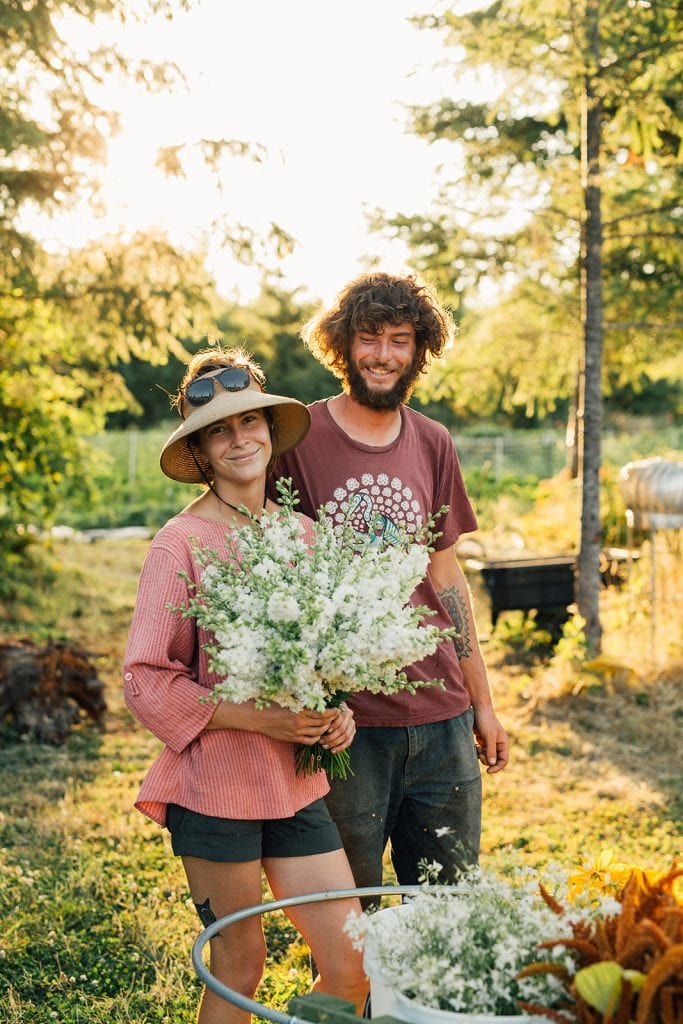
Farmers pictured: Elise & Wylie Duchin
Farm Location: Eatonville
CSA drops: University Place
CSA offerings: Produce, flowers.
Photo credit: Rylea Foehl
By inputting criteria based on what the consumer is looking for, whether it’s fresh produce available in the winter, specific fruits and vegetables, or home delivery, the customer can easily narrow down their search with the CSA Finder.
Farm shares allow buyers to carefully choose seasonal offerings directly from local farms by prepaying ahead of each season, creating a reciprocal consumer-farmer connection.
“The idea is that the farmer has guaranteed funds that they can use to buy the seeds and things they need to really get started for the season,” says Ide. “For the consumer, you’re getting access to the healthiest, freshest, most delicious products available from the farmer — not only eating better but creating a relationship with the person who’s growing your food.”
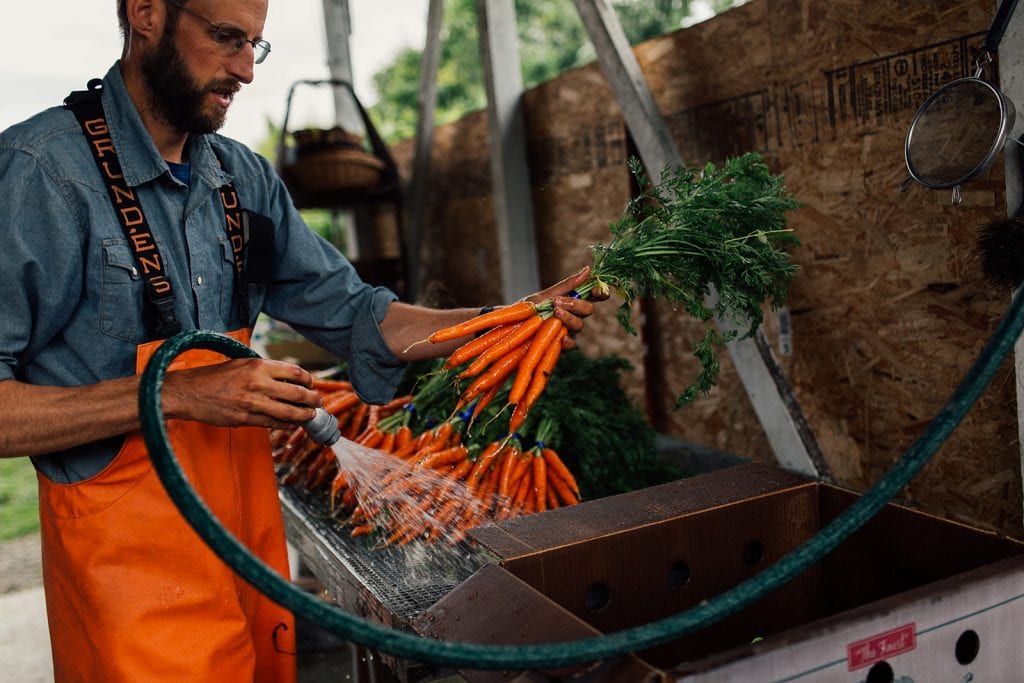
Farm Location: Tacoma (Waller area)
CSA drops: Ballard, on the farm
CSA offerings: Produce, plus optional eggs and flowers
Photo credit: Rylea Foehl
Though indeed not a new concept, CSA’s saw dramatic growth in popularity during the pandemic.
With more and more consumers making a concentrated effort to support local, choose safe and healthy alternatives, and avoid the threat of empty shelves at grocery stores, the increase comes as no surprise.
Typically, most CSA’s start around June and go through October or November. However, many are growing multiple crops and may have fall or winter shares available, depending on the farm. Several farms opened their subscription sign-ups earlier than usual due to the increased demand and have even expanded to offer more volume.
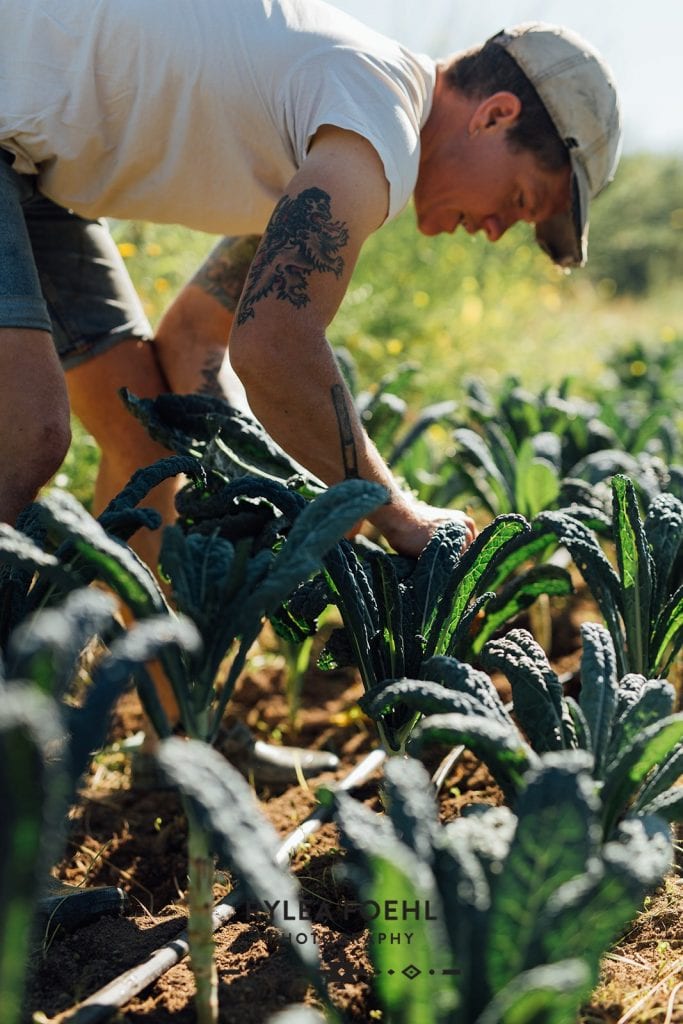
Farmer pictured: Grayson Crane Farm
Location: Eatonville
CSA drops: Seattle, Tacoma, on the farm
CSA offerings: Produce, plus optional eggs and goat cheese.
Photo credit: Rylea Foehl
Pink Moon Farm, in Eatonville, is one of several local farms offering CSA shares.
“We’ve seen already this year more people who are new to CSA, and that type of farm experience,” says Grayson Crane, owner and farmer at Pink Moon Farm. “Given how much we increased last year, we’re hoping to continue the number of boxes and expand on that, creating these authentic farmer-consumer relationships.”
Resources like the CSA Finder are beneficial to farmers, who often take on various roles within their small businesses. “It is really helpful to have a kind of one-stop-shop where people can get information about our farm, our growing practices, and the types of shares we offer,” says Crane. “It gives them the chance to find a CSA model or farm that works best for them.”
With early summer, summer, late summer, and fall seasonal share options, Pink Moon Farm offers pick-up points at several locations, including Seattle, Tacoma, and at the farm in Eatonville. They are open to share subscription sign-ups now.
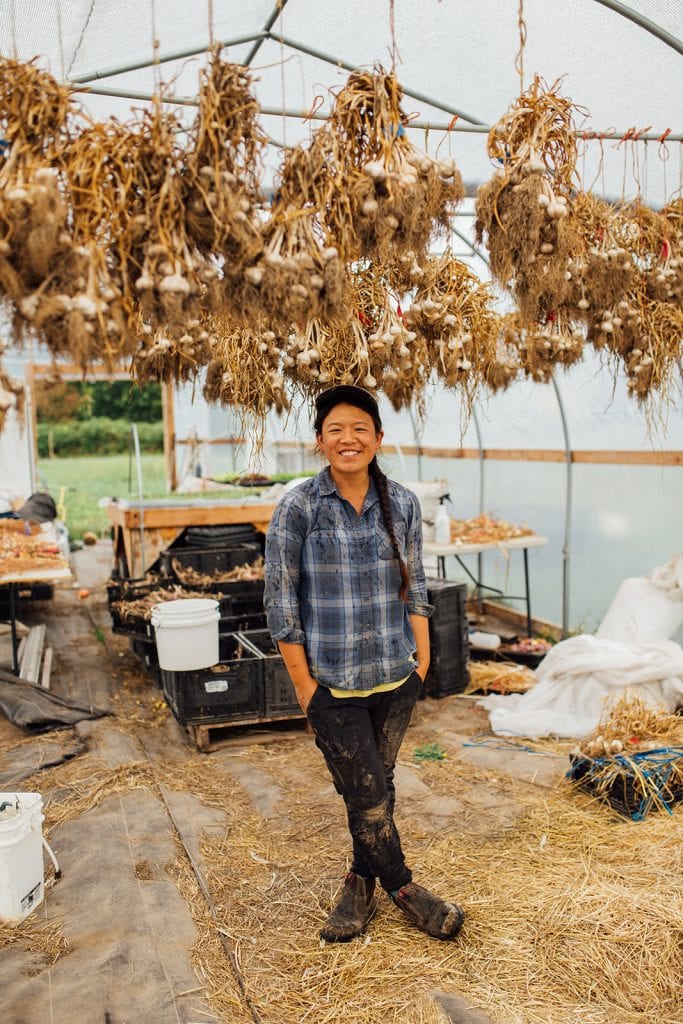
Farmer pictured: Emily Tzeng
Farm Location: Puyallup CSA drops: Tacoma, Seattle, on the farm
CSA offerings: Produce, plus optional eggs, bread, flowers.
Also has a fiber CSA (natural, hand-dyed yarns)
Photo credit: Rylea Foehl
Wild Hare Organic Farm in Tacoma is another farm that offers CSA subscriptions.
“Any tool that makes it easier for our immediate community and locale to find our farm is a great asset,” says Katie Green, owner and farmer at Wild Hare Organic Farm. “In the past, we relied a lot on farmers markets, and when the shopping experience changed last year due to the pandemic, having our CSA really saved us and saved our business.”
Green’s farm operates year-round and offers a subscription to shares by the season, spring through winter, or buyers can sign-up for the whole year. Shares are picked up right at the farm, with easy access to and from I-5.
As Wild Hare continues to pivot, they’ve introduced the first-ever sign-up event and established a ‘wait-list’ to accommodate both long-time and new customers. Last year was the first time in six years they sold out after having such a high volume of new CSA members.
“There are all different kinds of ways that farmers could choose to be a farmer,” says Green. “Farmers that have CSAs choose to farm this way because they really care about the personal element of feeding people and the direct customer relationships. That’s a unique thing that makes CSAs pretty special.”
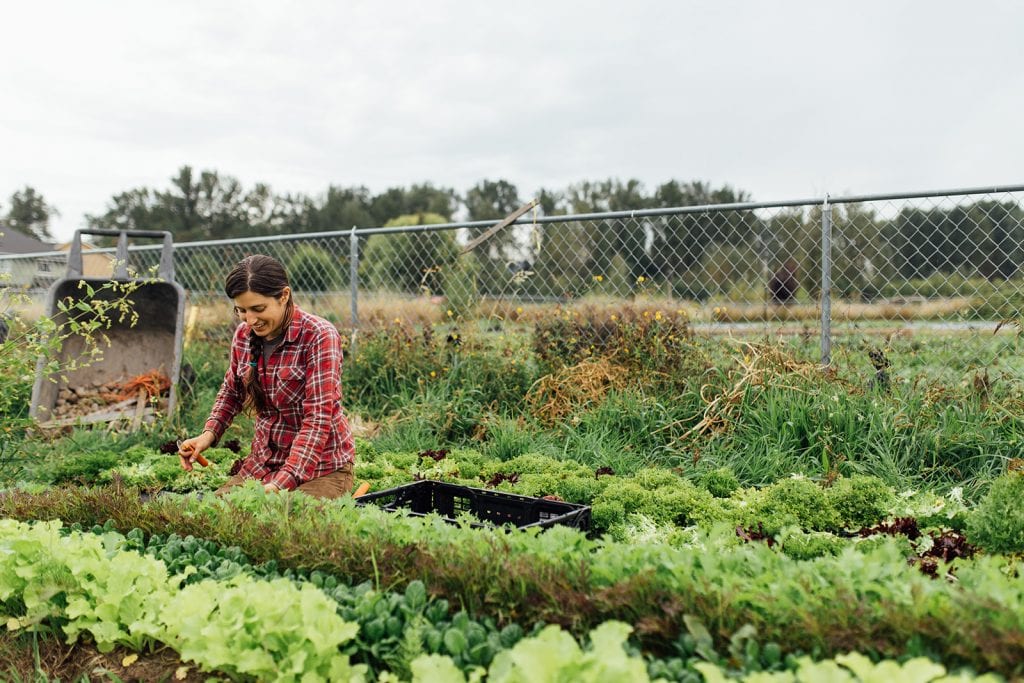
Farmer pictured: Gillian Locascio-Drutis
Farm Location: Orting CSA drops: Seattle, Tacoma, on the farm
CSA offerings: Produce
Photo credit: Rylea Foehl
Eat Local First has several initiatives beginning in March. Customers planning to sign up for a CSA can participate in a survey entering them into a drawing for $100 off of their CSA subscription. The drawing will take place in early summer.
A commercial campaign called ‘Meet Your CSA Farmer’ video series launched featuring segments from farms around the state on Eat Local First social media outlets, allowing consumers a chance to get to know local growers and producers.
With CSA subscription season quickly approaching, now is the perfect time to explore and make farm share selections. By supporting healthier local supply chains, consumers not only invest in farms but invest in local communities. The new CSA Finder makes it easier than ever.

















